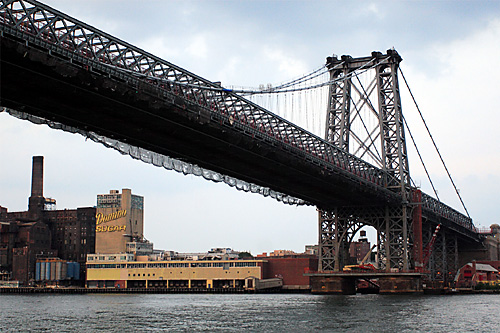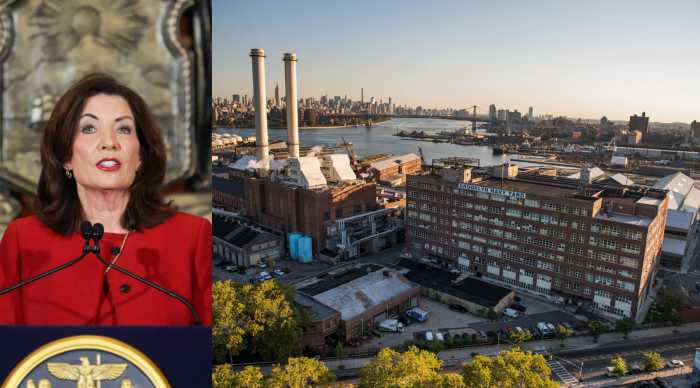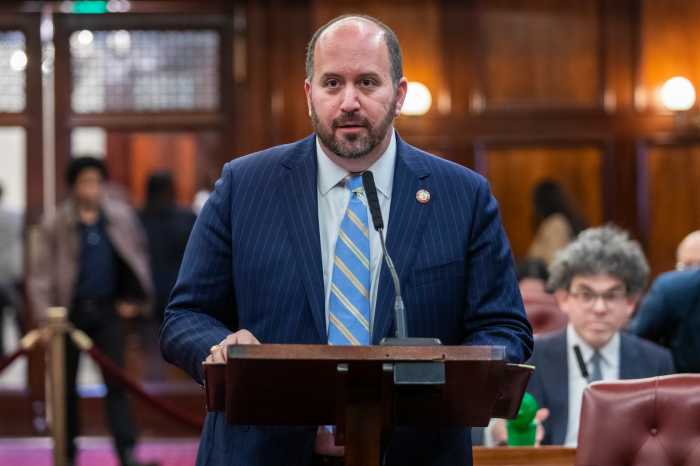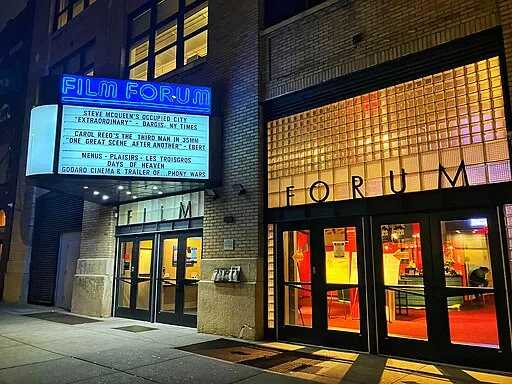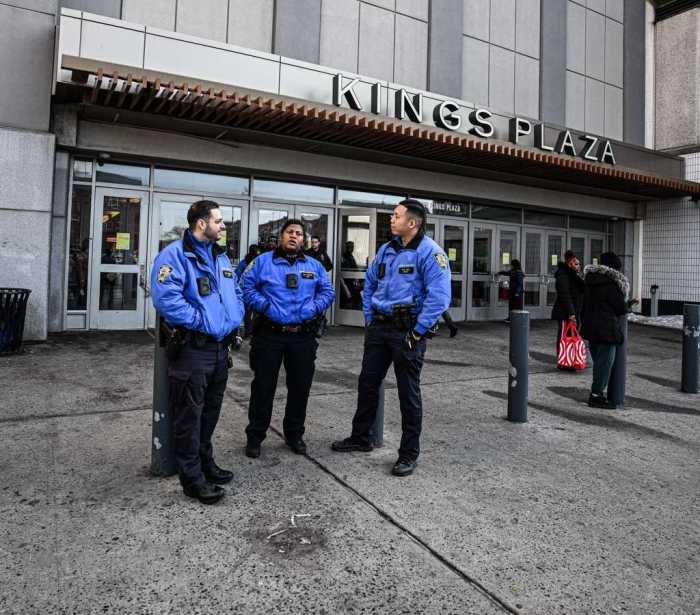The developer who made DUMBO desirable has reached a tentative agreement to buy Williamsburg’s Domino Sugar factory from its cash-strapped owners for $160 million.
Real estate powerhouse Two Trees is hammering out a deal with Domino co-owner Community Preservation Corporation Resources to purchase the troubled waterfront site — potentially jump-starting a stalled project slated to bring 2,200 apartments to an industrial icon on the neighborhood’s Southside.
Community Preservation Corporation Resources considered half a dozen offers for the 11-acre property before settling on a bid that could allow it to wipe away nearly $125 million of debt, the Daily News first reported.
“Two Trees understands waterfront development, is well-capitalized and is the best chance for Domino to get developed into the mixed-income, mixed-use community it was intended to be,” Community Preservation Corporation Resources CEO Rafael Cestero said in a statement. “With the sale of Domino, we will be able to return to our core mission as a lender providing badly needed capital to support affordable housing development and strengthen neighborhoods throughout the city and state.”
Sources close to both parties said Community Preservation Corporation Resources is still considering other bidders and the deal is not final, but Cestero hopes to finish negotiations in the coming weeks.
A spokesman for Two Trees declined to comment.
The developer has been shopping the project for months after defaulting on its $125 million loan in January.
The project’s manager, Susan Pollock, previously told The Brooklyn Paper that her company would seek to bring in a “reputable developer” who would stick with the original plans hammered out in a 2010 rezoning, including high-rise towers capped at 34 stories, shuttle bus service to the J train, and more than 600 apartments with rents below the market rate.
Two Trees is best known for changing DUMBO from an industrial backwater into one of the city’s most expensive neighborhoods — but the development company is no stranger to Williamsburg.
The builders first made inroads in the neighborhood six years ago when founder David Walentas bought a Wythe Avenue fabric factory for $9.5 million and set about turning it into a boutique hotel, which opened last month.
Real estate observers say the Southside may undergo big changes if Two Trees purchases the massive Domino Sugar site.
“This is a firm that is known for taking a long-term vision of the neighborhood and replacing artists and industry with condos,” said researcher and documentary filmmaker Brian Paul, who has dubbed Walentas a practitioner of “Jane Jacobs gentrification.”
Preservationist and Community Board 1 member Ward Dennis, who voted against the plan two years ago, said that Two Trees’s involvement at the Domino site bodes well for the fate of the project.
“Community Preservation never had a viable plan for the landmark refinery building, and clearly saw its preservation as an impediment rather than an opportunity,” said Dennis. “Two Trees’s track record with historic buildings — including the stunning renovation of the Wythe Hotel — hopefully means that the refinery will no longer be an afterthought.”
The sale isn’t a done deal — and several hurdles still stand in the way of development at the site.
Domino co-owner Isaac Katan has filed an appeal after a judge dismissed his first case attempting to bar Community Preservation Corporation Resources from negotiating with lender Pacific Coast Capital over debt.
Katan has also vowed to block the transaction with Two Trees. His attorney Y. David Scharf claims other would-be buyers believe the Domino project is worth between $175 million and $200 million — far more than the Two Trees arrangement.
“[Community Preservation Corporation Resources] has mismanaged the asset and has wasted millions of dollars and we cannot fathom why [the developer] refuses to extract value from this project,” said Scharf. “Worse, this new deal contains significant contingencies that could prevent it from ever being closed, leaving the project in limbo.”
Civic leaders say whoever winds up in control of the property must uphold the promises made to the community during the contentious rezoning, which permits residential development on the industrial site.
“I fully expect that every single one of those commitments will be honored, whether it is [Community Preservation Corporation Resources] or anyone else — and I will do everything I can to ensure they will be honored,” said Councilman Steve Levin (D–Williamsburg).



